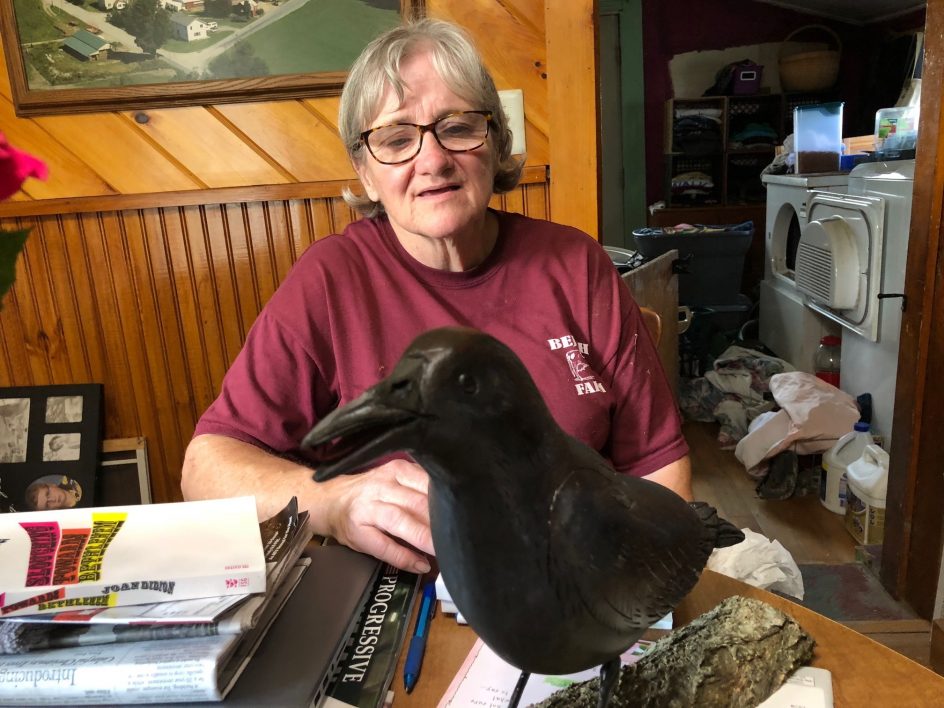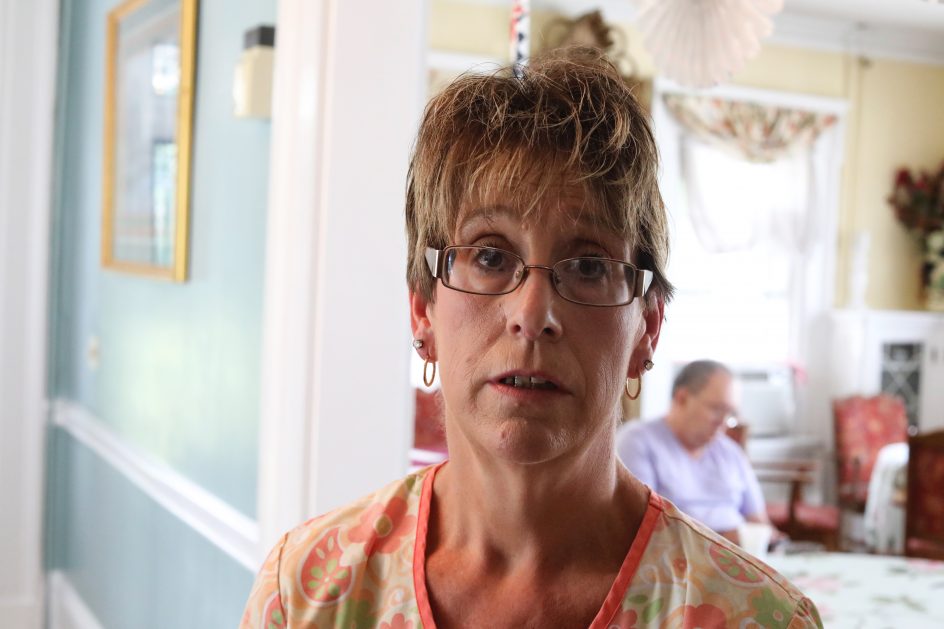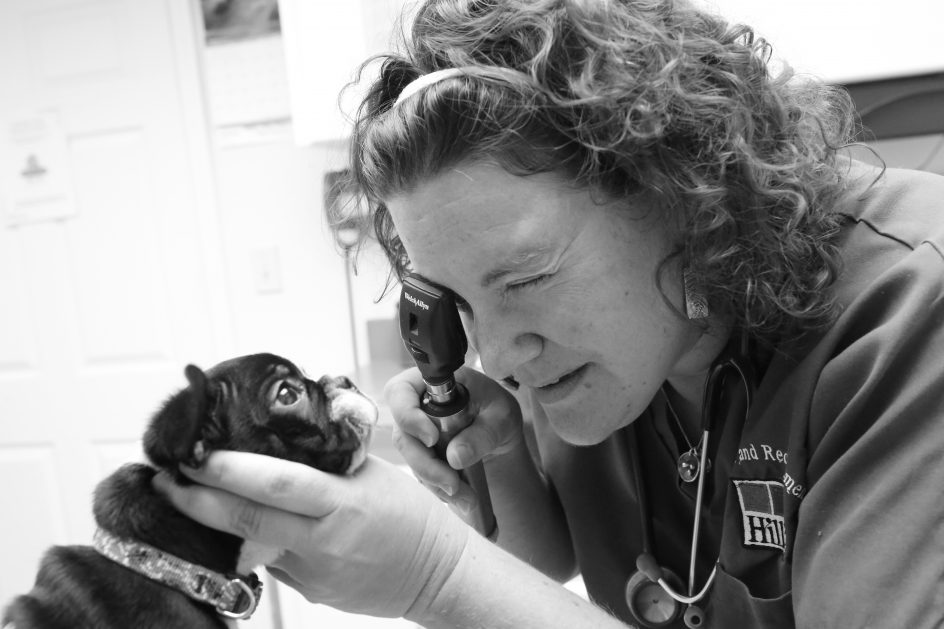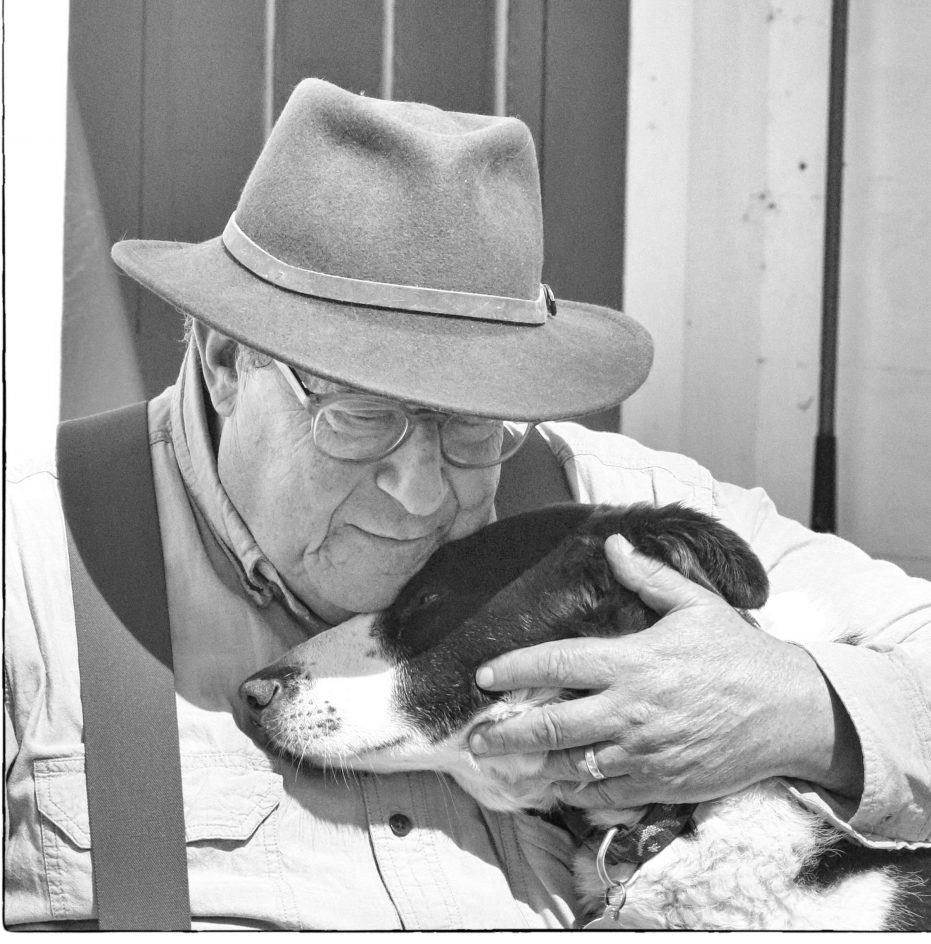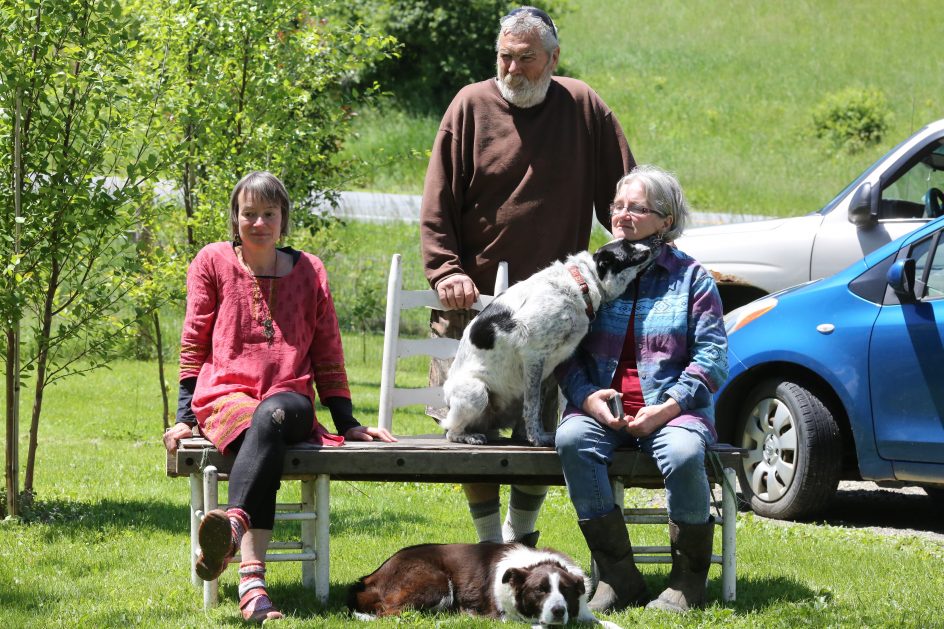
I was sitting in the farm kitchen today talking to Carol Gulley, and Ed’s daughter Maggie came in and said that Ed wanted to talk to me, and as she said it, I heard him calling out for me from his bedside. It was a thin, gravelly voice calling “Jon, Jon, Jon…”
I came into the room where Ed was and came over to his hospital bed.
His eyes were open, he was crying and looking around for me.
He reached over and clasped his right hand, his good hand, on my left wrist. He looked me in the eye with an expression I had not ever seen before.
“Jon,” he said, weeping now, closing his eyes but still gripping my arm, he has still a powerful grip.
“Jon, please,” he said, “please help me die.”
I pulled a chair up and took his hand in mine and leaned forward, and he repeated the sentence, about a dozen times: “Please, please, help me to die.”
“I’m done,” he said softly, and I recognized these words as quite often being the last words some people speak before they die.
I am not often speechless, and even more rarely so caught off guard.
I was not sure of how to respond at first, this had never happened to me before, no one had ever asked that of me before, and I felt my heart react to these words and my pulse quicken. Ed was crying now, and i wanted to cry too, for him and for me.
He opened his eyes and looked into mine, and I kept saying, “I will try to help Ed, I will help you, I promise,” although was not sure of what precisely I was promising to do or whether it was a promise that I could keep.
I said those words a dozen times, and I know Ed heard them. For sure, it was one of the most profound moments of my life.
This changed everything for me.
Ed is on morphine now, it has quieted his mind and brought him to a deep sleep, and it is the hospice way to increase the doses of morphine slowly until the dying patient is comfortable, free of pain, and falls into a deep and continuing sleep.
Nature is then free to take its course. That is a private and personal decision, almost always made by the family.
Increasing Ed’s morphine dose was the only way I could think of to help Ed to die a natural and peaceful death and ease his suffering, but that was not up to me. That was a decision that only hospice doctors and nurses or Carol and her family could make.
Still, I felt I had to be Ed’s advocate, this was a promise i made to him at the beginning of his illness, to help him to die if it came to that. He told me clearly how he wished to live and how he didn’t wish to live. He asked me to remember.
I felt I had to step over the line I had drawn and speak for him.
I asked Carol if I could speak to her about Ed’s request, and she said yes, we sat down at the kitchen table. I told Carol she had done everything possible for Ed, and it seemed to me it was time for her to draw into herself and speak with her family if she wished and talk and think about what was best for Ed.
I knew she was thinking long and hard- and painfully – about what her choices were.
I said I didn’t know if Ed was actively dying or not, neither could anyone else, but he did seem clear about wanting to go before things got any worse.
Carol’s face radiated great pain, fatigue and sadness.
She said she had been married to Ed for 47 years and never once imagined she would be in the position she is in today.
I told Carol I think she loved Ed more than any other person could, and I knew she was strong and brave and smart and would make the best decision for him in her own time. I urged her to trust her own instincts and heart and follow them.
I asked if she wanted to call me later at home, but I knew she wouldn’t.
Carol doesn’t do that.
I went to Maggie and sat with her and we both sat right next Ed for nearly an hour and talked. She had just returned from a trip to Washington with her daughter, Ed was eager to see her when she got back.
I talked about morphine and hospice and suffering.
I don’t feel at ease recounting the whole conversation, but I did say Ed seemed eager to leave the world, I know this is not the way he wishes to live, bound to a bed all day, unable to sit up, breathing heavily in stupor and pain, and dependent on others to bathe and shower and clean him.
Ed feels humiliated by the people caring for him and doing the thing he always did for himself. He cannot make the transition from strong and outspoken farmer to helpless cancer victim awaiting the end.
He says his life has no purpose now other than to make his loved ones sad and confused and tired. He says he wants to die. Ed is exhausted and in pain, he feels there is no purpose to his staying alive or prolonging his life.
I am not certain what Ed wants me to do, but I am honor bound to try to understand and carry out his wishes. The best way to do that is to talk softly and gently and to convey what it is I believe he said he wants.
To be his advocate, within bounds and limits. And to respect the boundaries of the family.
That is all I can do, and all I should do. Of all the people around Ed, I am the only one who has no right to be part of these decisions, I really don’t. I respect this line in the sand.
I believe Ed also knows that no one around him, including me, would actively or purposefully facilitate his death. It is difficult to accept that this is truly what he wants, or how he would want me to do it.
There are ways to make him more comfortable, there ways to help him sleep, there are ways to ease his increasing pain.
And yes, there are ways to make death quicker and easier that are well within the law and the ethics of medicine, and the call to compassion. But those are not for me to practice, advocate or argue for.
Still, I had a sinking feeling in my stomach, a helpless feeling, my friend was begging me for help, and he meant it. He spoke to me with great feeling and conviction, a plea from the heart.
If he feels helpless, so did I today. My heart sank in that room.
Carol Gulley and her family love Ed very much and they are just as aware as I am of the options they have, and the choices they may have to make.
But I was shaken and spinning from Ed’s heartfelt request. I was looking for firm ground.
What does friendship mean, really, and how far do you take your vows to a friend?
Ed does not have the option in our society to take his life or have someone else do it for him, the options we have for our dogs and cats. No one really wants to deal with death.
But he has certainly made clear to me that he does not wish his life prolonged in any way. Some things just cannot be easily resolved. Is this my business any longer?
Perhaps it’s the morphine speaking, or maybe it’s the cancer speaking when Ed asks me to help him die. I looked deep into Ed’s eyes and can’t really say. I felt it was Ed, I believe it was, I trust what I saw.
As I finish writing this, Carol messaged me that Ed is “resting nicely” and told his daughter Maggie that he was going to draw Thursday morning. “Love the crow,” she said, it was nice of her to think of me, at so late an hour.
So death, like life, is full of crisis and mystery. I am confused, a bit lost, drawn to stepping back over my line, standing down. And tonight, I suspect i will stare out at the night.
Lucky people dwell in a world clearly and rightly defined, where even the darkness is no surprise, but is, in fact, an opportunity.
Before I go to bed, I will sit in my chair with Red at my feet and think about what happened today, and what I was asked to do. It may not ever happen again.
I will digest that and meditate on it for awhile.
The Ed I saw today could not draw a line or make a sketch. I’m not God, perhaps he will tomorrow. I can’t know.
But my heart is still heavy and low.
Life is beyond all of us sometimes, and tonight, I am unsure of what to even hope for.

